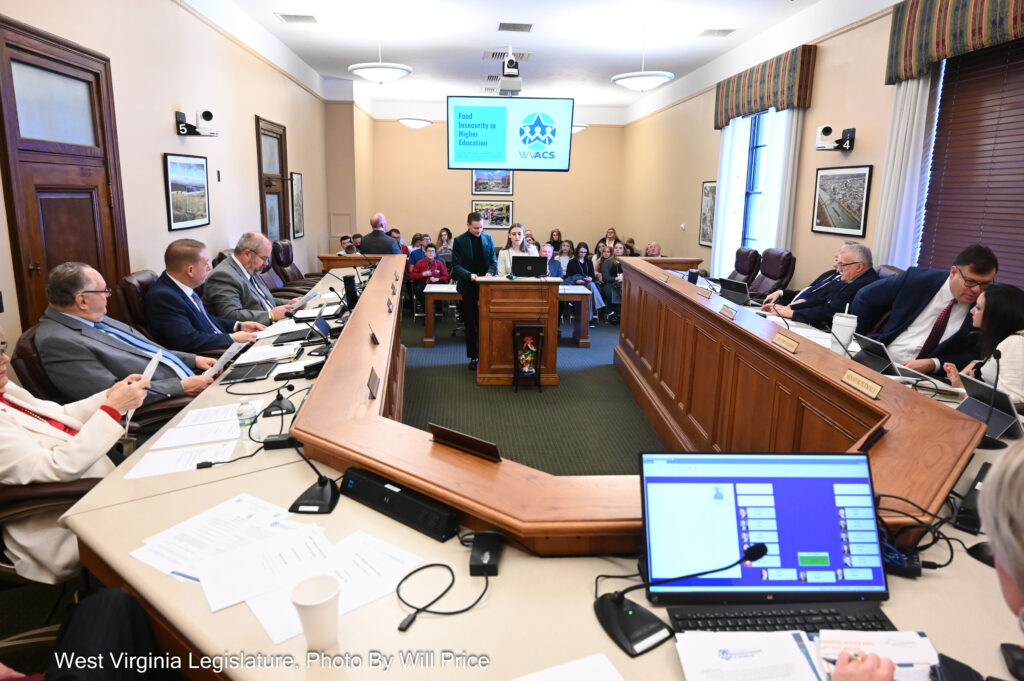West Virginia code tends to favor local control of schools via county boards of education. But in recent years, the state Board of Education has deemed it necessary to step in to address financial and administrative issues in several counties.
House Bill 5514 would enhance the training requirements for county boards of education members from the current seven to 12 hours.
The bill’s sponsor Del. Joe Statler, R-Monongalia, told the House Education Committee Monday afternoon that more training should better prepare elected board of education members to hold administrators accountable and reduce the need for state intervention.
“They run for the school boards, and they believe they have a good handle on it,” he said. “And trust me, I served 10 years, until you’re actually sitting in that seat and start taking on these things, you really do not have a good understanding. And sometimes after that you still don’t have a good understanding.”
The bill was advanced to the full House for its consideration.
The House Education Committee also discussed:
- H. B. 4709, relating to vocational and technical education programs.
- H. B. 5021, relating to cardiac response plans.
- H. B. 5175, eliminate funding for the Center for Nursing and transfer its duties and authorities to the Higher Education Policy Commission.
In The Senate
Another House bill aimed at improving county board of education accountability was taken up by the Senate Education Committee Tuesday morning.
House Bill 4832, which has already passed the House, requires the state superintendent to make an annual report to the Legislative Oversight Commission on Education Accountability regarding the finances of each school district. A similar report is currently made to the governor and the legislature broadly. Any school district that fails to report its finances to the state superintendent may be subject to a reduction of its state funding.
The state Board of Education took emergency control of Upshur County Schools last year after financial misappropriation, including tens of thousands of dollars in misspent federal funds, was discovered in a routine review.
House Bill 4832 now goes to the full Senate for its consideration.
The Senate Education Committee also considered Senate Bill 515, which prohibits public schools from requiring students to participate in sexual orientation instruction. It requires public schools to give advance written notification of any instruction regarding sexual orientation and gender identity and of a guardians’ right to exempt the child from participation.
However, as Senate Education counsel Amy Osgood explained to the committee, the bill has further requirements regarding students’ gender identity.
“It also provides to the public school and county board employees that are assigned to the school may not knowingly give false information or misleading information to the parent, custodian or guardian of the student regarding the student’s gender identity, or their intent to transition to a gender that is different than the sex listed on the student’s official birth certificate or a certificate that is issued upon adoption,” she said.
The bill also allows for parents and guardians to bring civil action against the public school if affected by a violation of the new law.
The bill was advanced without discussion or comment, with a reference to the Judiciary Committee.
Hunger-Free Campus
Senate Education also considered Senate Bill 292. Titled the Hunger-Free Campus Act, the law would require the West Virginia Higher Education Policy Commission (HEPC) to establish a grant program to address food insecurity among students enrolled in public institutions of higher education.
Colleges and universities working toward a hunger-free designation would need to establish a Campus Hunger Task Force, provide at least one food pantry on campus, provide options to use SNAP benefits – colloquially referred to as food stamps – at campus stores, and several other requirements.
The committee heard from student advocates on the need for more food support on the state’s college campuses.
Madison Santmyer, West Virginia University (WVU) student body president, told the committee that on-campus food banks have seen an increase in use over three years.
“For June 2020 to 2021… 77 visits and then jump to June 2023, we’re at 428,” she said. “Over four times the amount of students are visiting these food pantries on our campus. The need, whether that’s they know more about it now, but the need is obviously there. Some of the visits go to the thousands for some of the months.”
Several senators pointed out how much the cost of attending college has increased since their time.
“Now I went to WVU and then to Glenville State where I graduated but that was back in the 70s,” said Sen. David Stover, R – Wyoming. “And I remember I could get my room, board, tuition and fees for $600. Don’t you wish?”
Stover asked Santmyer how that compared to the cost of just a meal plan today.
“I don’t know the exact number off the top of my head, but I know for WVU, I believe it’s a few thousand dollars, between two and four,” she said.
WVU’s least expensive on-campus meal plan is $2,634 per semester.
Sen. Michael Azinger, R-Wood, was the sole dissenting voice. He spoke against the bill, calling it “nanny state stuff.”
“My first year of college, I lost 20 pounds,” he said. ”I think what we’re doing here, probably unintentionally, but we’re creating a victim group, I think, of people who are just experiencing the normal hardships of life. You know, you go to college, sometimes don’t have food, sometimes you get hungry. It’s life. It builds character.”
The bill was recommended to the full Senate.
A similar bill last year failed to make it out of the Senate Finance Committee. Committee Chair Sen. Amy Grady, R-Mason, said that should not be an issue this year.
“We have requested for the finance chairman to waive the second reference and he has agreed so that should be done on the floor,” she said.




















